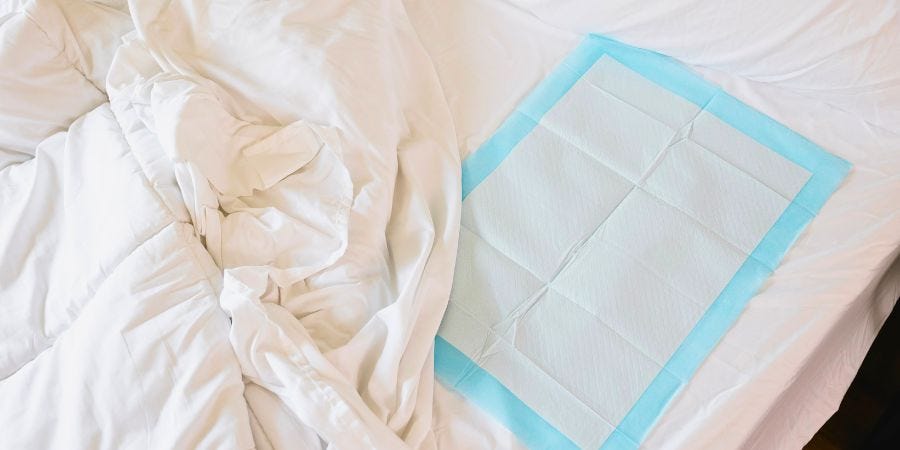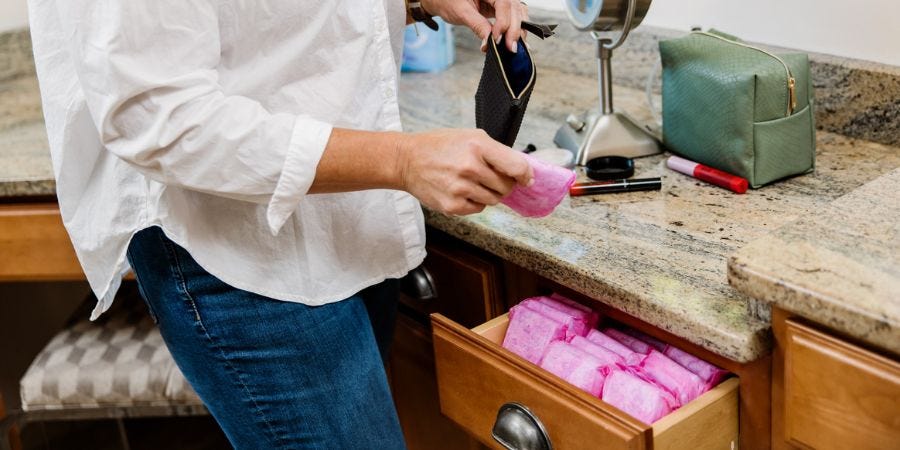Key Takeaways:
- Teen bedwetting can stem from various causes like deep sleep, small bladder capacity, and increased nighttime urine production.
- You can help your child with treatment options including lifestyle changes, behavioral adjustments, and bedwetting alarms.
- If bedwetting persists, you can seek professional help to rule out any underlying medical conditions.
Many parents of older children who continue to wet the bed often ask the question, “why is this still happening?” Bedwetting, also known as nocturnal enuresis, can be frustrating for both teens and their caregivers. Your child’s self-esteem can also be negatively affected by their bedwetting, so it can be helpful to understand why it’s occurring.
If your loved one is dealing with bedwetting, we can help prevent and manage their symptoms. Read this post for tips from Board-Certified Pediatric Nurse Practitioner and pediatric urology provider, Samantha Eaker, DNP, CPNP-PC, for bedwetting prevention and treatment.


Jump To:
What Are the Causes of Teen Bedwetting?
How Is Teen Bedwetting Diagnosed?
How Can I Help My Teen With Bedwetting?
How to Prevent & Treat Teen Bedwetting
When to Seek Professional Help for Bedwetting
Receive Bedwetting Supplies Through Insurance
INCONTINENCE PRODUCTS THROUGH INSURANCE:
Aeroflow Urology is in-network with many Medicaid and Medicaid-managed insurance plans and is accredited by Medicaid. Complete our Eligibility Form, and we’ll automatically check to see if your plan covers incontinence supplies. ***Must meet certain requirements to qualify.***
You will also receive the care and attention every person managing incontinence deserves: A personalized list of 100% insurance-covered incontinence supplies, a dedicated Continence Care Specialist you can contact during business hours, a user-friendly online portal for easy monthly reordering, and educational content.
Get the continence care you need with the dignity you deserve. Join the Aeroflow Urology family today! It only takes 5 minutes to get started.
Check Your Eligibility
In Under 2 Minutes
Discover the adult incontinence products available through your insurance.
What Are the Causes of Teen Bedwetting?
Nocturnal enuresis is not uncommon among children. According to Science Daily, 1 in 50 teens wet the bed–about 1% of 15 year olds have nocturnal enuresis.
Your teen may still struggle with bedwetting for several reasons, including but not limited to:
- Sleeping too deeply and/or the inability to wake up to use the restroom during sleep, which is most often the cause.
- Small bladder capacity.
- Increased urine production overnight.
- Genetic predisposition, as bedwetting often runs in families.
- Neurological conditions.
- Diet
- Stress or anxiety.
- Overactive bladder (OAB).
- Obstructive sleep apnea.
- Constipation: incomplete stool emptying can contribute greatly to, if not solely cause, bedwetting—particularly in children.
- Urinary tract infection (UTI) or kidney infection.
- Certain medications.
How Is Teen Bedwetting Diagnosed?
Speak with your child’s healthcare provider or pediatrician if they experience nocturnal enuresis. Their provider may ask for information about their medical history or the presence of incontinence (daytime wetting). They may also inquire about your loved one’s sleep patterns, bathroom habits, and mental health status.
A physical exam, imaging, blood work, and/or urinalysis may be performed to rule out or identify any underlying causes that may be contributing to or causing their bedwetting.


How Can I Help My Teen With Bedwetting?
First and foremost, ensure your child knows that they’re not alone and that the bedwetting is not their fault. Try your best to reduce the shame associated with talking about the condition. Always be supportive and talk about their condition when they’re feeling ready. When your child is open to help, seek further medical attention and advice from their primary care provider, as outlined above.
How to Prevent & Treat Teen Bedwetting
Board-Certified Pediatric Nurse Practitioner and pediatric urology provider, Samantha Eaker, DNP, CPNP-PC, suggests the following prevention and treatment tips for teen bedwetting.
Identify Triggers & Patterns
Try to identify patterns or triggers associated with your teen’s bedwetting. This could be drinking too much fluid before or around bedtime, high stress or anxiety, deep or poor sleep, infection (eg UTI), constipation, or anything else that seems to correlate with wet nights.
Make Simple Lifestyle Adjustments
Simple behavioral modificationsmay help decrease the frequency of your child’s bedwetting.
- Encourage your loved one to drink fluids earlier in the day rather than later.
- Limit fluid intake before bed.
- Reduce and limit caffeine and dairy intake, particularly in the second half of the day.
- Ask them to “double pee” before bed (empty their bladder twice).
- Make sure they are having at least 1 soft bowel movement per day.
Use a Bedwetting Alarm
Bedwetting alarms are the gold standard treatment for bedwetting. These alarms are designed to treat deep sleep as an etiology of the bedwetting and foster the communication between your child’s brain and bladder overnight. The alarm units are activated when your teen begins to leak urine onto the alarm’s moisture sensor. When this happens, the alarm sounds are activated with the goal of waking your loved one from sleep to use the restroom. Over time, your child will hopefully wake up earlier and earlier and ultimately start to experience nocturia—which is when they wake up overnight feeling the sensation to pee but have yet to pee on themselves.
Try Medical Therapies
Some medications are used to treat the symptoms of bedwetting but rarely cure the cause. Certain medications can increase bladder capacity or decrease urine production overnight—decreasing or resolving wet nights. They can be very effective and predictive, but their use is mostly recommended for as-needed scenarios such as sleepovers, travel, camping, etc.
Use Incontinence Supplies
Protective products for young adults, such as briefs, pull-ups, and underpads are wonderful resources to help contain your child’s leaked urine overnight. Briefs are equipped with maximum absorbency to soak up overnight leaks, and underpads act as an extra protective layer for bedding during heavier accidents, leaving you or your teen with less laundry! Your loved one may qualify to receive these incontinence supplies through their insurance plan with Aeroflow Urology– just fill out our 2-minute Eligibility Form with their insurance information to see if they’re eligible!


When to Seek Professional Help for Bedwetting
If the above prevention and treatment options aren’t working and your teen continues to wet the bed, they may benefit from a referral to a pediatric urology provider for further evaluation of the etiology of the bedwetting, which is more often a disorder of sleep than an issue with their genitourinary tract or its function.
You should also see a healthcare provider if your child also has other bladder problems, such as daytime urinary symptoms, recurrent UTIs, or if there is a family history of any urological abnormality. In this case, if bedwetting also occurs, there may be an underlying medical condition, such as structural, anatomical, or neurological abnormality that needs addressing for the bedwetting to resolve. However, this is often not the case.
Remember that bedwetting in older children and teens is common and often reversible, so stay supportive and don’t give up hope. Dry nights are possible!
References
One In 50 Teenagers Still Wet The Bed. (n.d.). ScienceDaily. Retrieved July 10, 2024, from
https://www.sciencedaily.com/releases/2006/05/060517190502.htm
Disclaimer
Information provided on the Aeroflow Urology blog is not intended as a substitute for medical advice or care from a healthcare professional. Aeroflow recommends consulting your healthcare provider if you are experiencing medical issues relating to incontinence.














